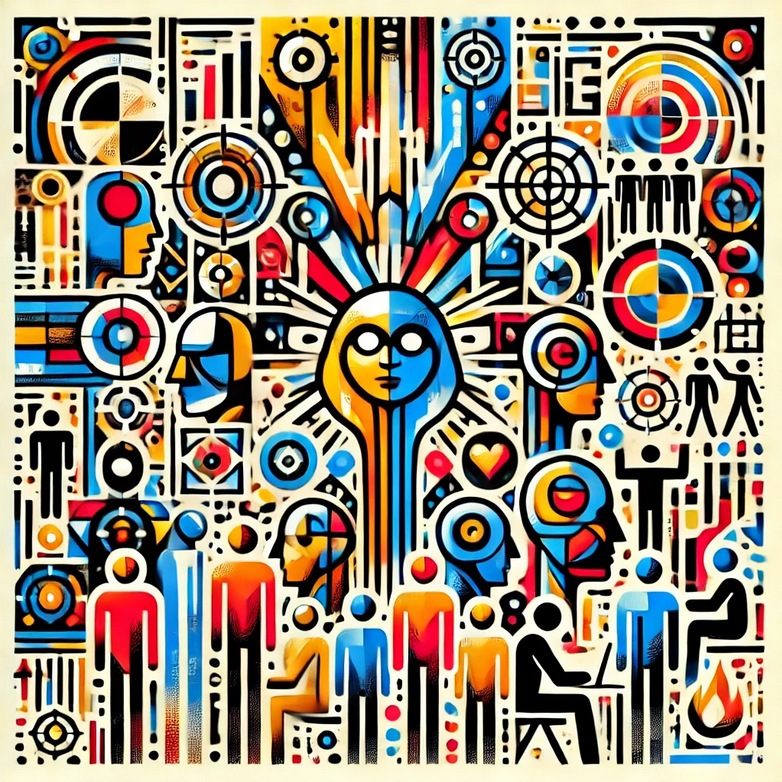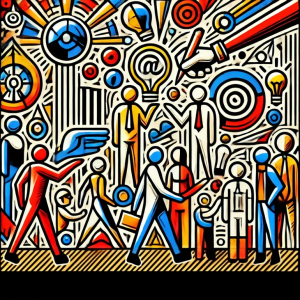WordPress is a giant in the digital world. Today, more than 40% of websites globally use it as their content management system. With this popularity, various professional roles have emerged around this platform. However, it’s not always clear what a web developer does, how they differ from a programmer, or what an implementer brings to the table.
And what about web designers, who also play an important role?
Whether you’re exploring a career in the WordPress ecosystem or looking to hire a professional for your next project, it’s crucial to understand what each role offers and when their services are needed. We’ll also look at other important roles, like designers and business strategists, that complement the WordPress ecosystem.
Contents
- 1 So… What Does a Web Developer Do in WordPress?
- 2 The Role of a WordPress Programmer
- 3 Enter the WordPress Implementers
- 4 Web Designers in the WordPress Ecosystem
- 5 Other Key Roles in WordPress Website Development
- 6 From The Professional Side: Which Professional Path Should You Choose?
- 7 From The Client Side: How to Choose the Right Professional for Your WordPress Project
So… What Does a Web Developer Do in WordPress?
A web developer in the WordPress context combines technical skills and creativity. They work directly with advanced tools like themes and plugins while mastering languages like PHP, JavaScript, and CSS to customize and extend website functionality. Some consider a WordPress developer to be a programmer who specializes in the platform, while others see them as someone who sets up and customizes sites without deep programming.
Whatever it is, if you need your website to do something specific that doesn’t come “out of the box” in WordPress, they’re the ones who can build it from scratch.
A web developer provides tailored solutions that you won’t find in pre-designed themes or plugins. Their technical knowledge maximizes your website’s functionality and efficiency, creating unique tools adapted to your needs.
Some common use cases?
- Custom Online Store with WooCommerce
A developer can create a fully tailored online store, adding personalized functionalities like custom payment options, inventory integrations, or a unique order management system.
- Integration with External Systems
If your site needs to connect to a CRM or ERP system, a developer can implement these integrations using custom APIs.
- Advanced Performance Optimization
For high-traffic websites, a developer can optimize databases, implement advanced caching, or configure servers.
What are the most specific technical skills of a web developer?
- HTML, CSS, and JavaScript: Fundamental skills for building user interfaces and structuring web pages.
- Knowledge of responsive design: Ability to create websites that work seamlessly across different devices and screen resolutions.
- JavaScript frameworks: Experience with frameworks like React, Vue.js, or Angular for developing advanced web applications.
- Performance optimization: Techniques to improve website speed and performance.
- Web accessibility: Implementation of practices to ensure the site is accessible to all users.
The Role of a WordPress Programmer
Although these roles share some skills, a programmer is more focused on pure coding. While a web developer works directly with WordPress tools, a programmer can build everything from scratch, without relying on the CMS.
Some areas of expertise could be:
- Creating custom plugins
Specialized programmers can write plugins from scratch to add specific features to your WordPress site, like a unique booking system or a custom data analysis tool.
- Database optimization and server-side performance
Programmers can enhance the performance of complex or high-traffic websites, ensuring the server handles the load efficiently.
- Building complex web applications using WordPress as a framework
When WordPress alone doesn’t meet your needs, a programmer can use it as a base for more advanced web applications interacting with other systems.
So, when do you need a programmer instead of a developer?
If your project requires highly specific functionalities, integrations not available within the WordPress ecosystem, or a custom plugin built from scratch, a specialized programmer is your best bet.
What are the most specific technical skills of a programmer?
- Programming languages: Proficiency in PHP, Python, Ruby, or other backend-related languages.
- Databases: Experience with MySQL, PostgreSQL, or non-relational databases like MongoDB.
- APIs: Development and consumption of RESTful or GraphQL APIs.
- Version control systems: Proficiency in using Git for code management.
- Algorithmic problem-solving: Ability to design and optimize algorithms.
Enter the WordPress Implementers
An implementer, or site builder, is an expert at using WordPress’s existing tools, such as themes and plugins, to build a functional website without writing code. This role is ideal for standard projects that don’t require advanced customizations.
Implementers are a quicker, more cost-effective option for simpler projects. However, their capabilities may be limited if advanced customizations are required. In fact, we can say that most web development agencies function primarily as WordPress implementers rather than developers in the strict sense.
Their core competencies are these:
- Configuring ready-to-use themes and plugins
Implementers can select the best market plugins and themes and adjust them to meet client needs without developing functionalities from scratch.
- Setting up features like forms, online stores, or galleries
Using tools like Elementor, WooCommerce, or Contact Form 7, implementers can quickly deploy basic but effective functions on any website.
- Customizing theme options to personalize colors, fonts, and layouts
Their work focuses on adjusting the design and structure of the website without altering the source code.
What are the most specific technical skills of a implementer?
- WordPress configuration: Installation and adjustment of basic settings.
- Themes and plugins management: Customization of existing themes and configuration of popular plugins.
- Basic technical SEO: Setting up SEO tools and making basic adjustments to improve ranking.
- Visual optimization: Simple design tweaks using visual builders (Divi, Elementor, etc.).
- Integration of external tools: Connecting tools like Google Analytics, email systems, or CRMs.
Web Designers in the WordPress Ecosystem
The role of a web designer focuses on the visual and user experience aspects. They create attractive, functional interfaces, adapting themes or designing from scratch.
Unlike developers and programmers, designers don’t work on the website’s functionality but rather on how it looks and how users interact with it. Although many senior web designers have experience as implementers or even web developers, these are not their core skills.

“It’s essential to understand how each role contributes to a project’s success, but ultimately, the end user decides if a website meets its goals. That’s why involving UX strategists and designers from the start ensures a seamless and effective experience.”
Ana Cirujano, Product Designer at Ploogins
Other Key Roles in WordPress Website Development
WordPress Consultants and Strategists
These professionals help define your website’s business goals and strategy, ensuring your investment delivers real results. They are especially valuable for larger projects or when a focused approach is required for online success.
Maintenance and Security Professionals
They keep your website secure and updated, including tasks like backups, managing updates, and performance optimization. Proper maintenance ensures your site continues to run smoothly over time.
You might be interested in taking a look at this article.
SEO Specialists
They optimize your site for search engines, ensuring your target audience can find you. Through SEO best practices, they help improve your ranking and online visibility.
This is so important when creating a website that we have created a SEO guide for web developers that you can read here.
From The Professional Side: Which Professional Path Should You Choose?
The first thing is to consider your main personal interests.
Do you prefer design creativity, logical coding, or hands-on work with ready-to-use tools? Defining your motivation will help you choose the right path.
Another essential factor is the technical level. If you’re starting out, the implementer role might be a good entry point before advancing to developer or programmer roles.
Learning Paths
- For Implementers:
Start by learning how to work with popular themes and plugins like Astra, Elementor, and Yoast SEO. Tutorials and WordPress’s official documentation are essential resources.
- For Web Developers
Focus on learning PHP, JavaScript, and WordPress’s internal architecture. Tools like Gulp, Webpack, and Git will become valuable as you grow in your role.
- For Programmers
Dive deeper into advanced programming, mastering areas like plugin creation and using APIs for complex integrations.
From The Client Side: How to Choose the Right Professional for Your WordPress Project
First, consider the scope of your project. If you need advanced customization, look for a developer or programmer. For more standard projects, an implementer or a designer may suffice.
How to evaluate candidates?
- Request Examples of Previous Work: Review their portfolio to see projects similar to yours.
- Investigate Their Experience: Assess how well their skills match your project’s needs.
- Assess Communication Skills: Ensure they understand your goals clearly.
In the WordPress world, every role is essential. Knowing who does what is crucial to choosing the right professional or defining your career path.
And remember, whether you’re a professional or a user, tools like Ploogins can be your ally in finding safe and optimal solutions to complement your WordPress project. Explore more and discover what you can achieve!



